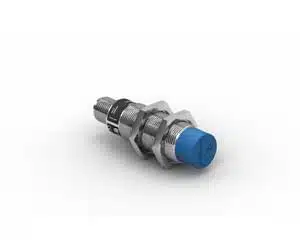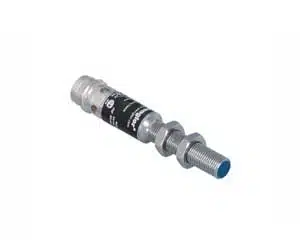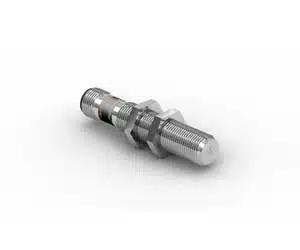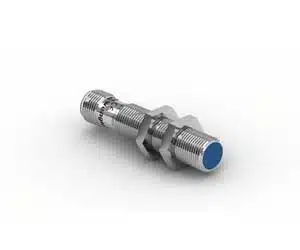[et_pb_section fb_built=”1″ fullwidth=”on” disabled_on=”on|on|on” _builder_version=”4.23.1″ _module_preset=”default” disabled=”on” global_colors_info=”{}”][et_pb_fullwidth_image src=”https://indmallautomation.com/wp-content/uploads/2023/12/proximity-sensor-wenglor.jpg” alt=”Proximity Sensor Wenglor” title_text=”proximity-sensor-wenglor” _builder_version=”4.23.1″ _module_preset=”default” global_colors_info=”{}”][/et_pb_fullwidth_image][/et_pb_section][et_pb_section fb_built=”1″ _builder_version=”4.23.1″ background_enable_color=”off” custom_margin=”0px||0px||false|false” custom_padding=”0px||0px||false|false” collapsed=”off” global_colors_info=”{}”][et_pb_row _builder_version=”4.20.2″ _module_preset=”default” global_colors_info=”{}”][et_pb_column type=”4_4″ _builder_version=”4.20.2″ _module_preset=”default” global_colors_info=”{}”][et_pb_text _builder_version=”4.23.1″ text_text_color=”#000000″ header_text_align=”right” header_2_text_align=”right” header_2_text_color=”#ffffff” header_5_font=”Times New Roman||||||||” header_5_text_align=”right” global_colors_info=”{}”]
[/et_pb_text][/et_pb_column][/et_pb_row][/et_pb_section][et_pb_section fb_built=”1″ _builder_version=”4.20.4″ background_color=”#ededed” custom_margin=”0px||0px||false|false” custom_padding=”0px||0px||false|false” collapsed=”off” global_colors_info=”{}”][et_pb_row _builder_version=”4.16″ global_colors_info=”{}”][et_pb_column type=”4_4″ _builder_version=”4.16″ global_colors_info=”{}”][et_pb_text _builder_version=”4.27.4″ header_font=”Times New Roman||||||||” header_text_color=”#0C71C3″ header_2_font=”|700|||||||” header_2_text_align=”justify” header_2_text_color=”#000000″ custom_margin=”||||false|false” custom_padding=”||||false|false” border_width_bottom=”3px” border_color_bottom=”#FFFFFF” global_colors_info=”{}”]
Wenglor Proximity Sensor – Inductive Switch
[/et_pb_text][et_pb_text _builder_version=”4.27.4″ text_font=”Times New Roman||||||||” text_text_color=”#000000″ header_font=”Times New Roman||||||||” header_3_font=”|600|||||||” header_3_text_align=”justify” header_3_text_color=”#000000″ text_orientation=”justified” hover_enabled=”0″ global_colors_info=”{}” sticky_enabled=”0″]
Wenglor proximity sensor technology forms a distinct industrial sensing entity defined by contactless metal detection using consistent electromagnetic principles. This category covers standard sensing ranges, cylindrical or rectangular housings, and switching outputs aligned with common automation interfaces used across factories in India. The Wenglor designation supports clear semantic grounding for engineers comparing Wenglor Proximity Sensors with similar inductive detection devices in industrial environments.
The Wenglor Proximity Sensor, manufactured by Wenglor, operates on inductive sensing principles, uses stable oscillator-based detection circuits, and follows IEC-aligned classification attributes relevant to proximity switching components. These sensors are available in shielded or unshielded structures, support PNP or NPN outputs, and integrate threaded or smooth-body housings for panel or machine-mount applications. Each Wenglor Inductive Proximity Sensor category instance aligns with a non-contact electromagnetic technology type, metallic-target structure type, inductive-switch classification attributes, and standardized electrical interface types.
[/et_pb_text][/et_pb_column][/et_pb_row][/et_pb_section][et_pb_section fb_built=”1″ _builder_version=”4.17.6″ _module_preset=”default” collapsed=”off” global_colors_info=”{}”][et_pb_row column_structure=”1_3,2_3″ _builder_version=”4.17.6″ _module_preset=”default” collapsed=”on” global_colors_info=”{}”][et_pb_column type=”1_3″ _builder_version=”4.17.6″ _module_preset=”default” global_colors_info=”{}”][et_pb_image src=”https://indmallautomation.com/wp-content/uploads/2023/12/wenglor-proximity-sensor-1.jpg” alt=”Wenglor Proximity Sensor” title_text=”wenglor-proximity-sensor” align=”center” _builder_version=”4.23.1″ _module_preset=”default” custom_margin=”||0px||false|false” custom_padding=”0px||0px|0px|false|false” box_shadow_style=”preset6″ locked=”off” global_colors_info=”{}”][/et_pb_image][/et_pb_column][et_pb_column type=”2_3″ _builder_version=”4.17.6″ _module_preset=”default” global_colors_info=”{}”][et_pb_text _builder_version=”4.23.1″ _module_preset=”default” text_text_color=”#000000″ text_line_height=”1.5em” header_2_text_color=”#000000″ header_4_text_align=”left” custom_margin=”|-10px||-10px|false|false” custom_padding=”|||0px|false|false” locked=”off” global_colors_info=”{}”]
Wenglor Proximity Sensor: Increased Switching Distances
The inductive sensors with increased switching distances from Wenglor feature the following combined main specifications:
- Ranges: 2 mm to 40 mm
- Speeds: 210 Hz to 1150 Hz
- Output: PNP for all models
[/et_pb_text][/et_pb_column][/et_pb_row][et_pb_row column_structure=”1_3,2_3″ _builder_version=”4.17.6″ _module_preset=”default” collapsed=”on” global_colors_info=”{}”][et_pb_column type=”1_3″ _builder_version=”4.17.6″ _module_preset=”default” global_colors_info=”{}”][et_pb_image src=”https://indmallautomation.com/wp-content/uploads/2023/12/wenglor-proximity-switch.jpg” alt=”Wenglor Proximity Switch” title_text=”wenglor-proximity-switch” align=”center” _builder_version=”4.23.1″ _module_preset=”default” custom_margin=”||0px||false|false” custom_padding=”0px||0px|0px|false|false” box_shadow_style=”preset6″ locked=”off” global_colors_info=”{}”][/et_pb_image][/et_pb_column][et_pb_column type=”2_3″ _builder_version=”4.17.6″ _module_preset=”default” global_colors_info=”{}”][et_pb_text _builder_version=”4.23.1″ _module_preset=”default” text_text_color=”#000000″ text_line_height=”1.5em” header_2_text_color=”#000000″ header_4_text_align=”left” custom_margin=”|-10px||-10px|false|false” custom_padding=”|||0px|false|false” locked=”off” global_colors_info=”{}”]
Wenglor Proximity Switch: Standard Switching Distances
The inductive sensors from Wenglor, designed for contactless metal object detection, have the following main specifications:
- Ranges: 0.8 mm, 2 mm, 5 mm, 10 mm
- Speeds: 5 kHz, 1180 Hz, 1110 Hz, 580 Hz
- Output: PNP for all models
[/et_pb_text][/et_pb_column][/et_pb_row][et_pb_row column_structure=”1_3,2_3″ _builder_version=”4.17.6″ _module_preset=”default” collapsed=”on” global_colors_info=”{}”][et_pb_column type=”1_3″ _builder_version=”4.17.6″ _module_preset=”default” global_colors_info=”{}”][et_pb_image src=”https://indmallautomation.com/wp-content/uploads/2023/12/wenglor-inductive-sensor.jpg” alt=”Wenglor Inductive Sensor” title_text=”wenglor-inductive-sensor” align=”center” _builder_version=”4.23.1″ _module_preset=”default” custom_margin=”||0px||false|false” custom_padding=”0px||0px|0px|false|false” box_shadow_style=”preset6″ locked=”off” global_colors_info=”{}”][/et_pb_image][/et_pb_column][et_pb_column type=”2_3″ _builder_version=”4.17.6″ _module_preset=”default” global_colors_info=”{}”][et_pb_text _builder_version=”4.23.1″ _module_preset=”default” text_text_color=”#000000″ header_2_text_color=”#000000″ global_colors_info=”{}”]
Wenglor Inductive Sensor with IO-Link
The main specifications for the inductive sensors with IO-Link from Wenglor are as follows:
- Ranges: 4 mm to 40 mm
- Speeds: 330 Hz to 770 Hz
- Output: PNP (with error output available)
- Mounting: Options include flush, semi-flush, and non-flush
- Circuit: Normally Open (NO) for all models
[/et_pb_text][/et_pb_column][/et_pb_row][et_pb_row column_structure=”1_3,2_3″ _builder_version=”4.17.6″ _module_preset=”default” collapsed=”off” global_colors_info=”{}”][et_pb_column type=”1_3″ _builder_version=”4.17.6″ _module_preset=”default” global_colors_info=”{}”][et_pb_image src=”https://indmallautomation.com/wp-content/uploads/2023/12/wenglor-inductive-sensors.jpg” alt=”Wenglor Inductive Sensors” title_text=”wenglor-inductive-sensors” align=”center” _builder_version=”4.23.1″ _module_preset=”default” custom_margin=”||0px||false|false” custom_padding=”0px||0px|0px|false|false” box_shadow_style=”preset6″ locked=”off” global_colors_info=”{}”][/et_pb_image][/et_pb_column][et_pb_column type=”2_3″ _builder_version=”4.17.6″ _module_preset=”default” global_colors_info=”{}”][et_pb_text _builder_version=”4.23.1″ _module_preset=”default” text_text_color=”#000000″ text_line_height=”1.5em” header_2_text_color=”#000000″ header_4_text_align=”left” custom_margin=”|-10px||-10px|false|false” custom_padding=”|||0px|false|false” locked=”off” global_colors_info=”{}”]
Wenglor Inductive Sensors: Full-Metal Housing
- Material: Stainless steel 316L (1.4404/V4A)
- Protection: Impact-resistant, chemical-resistant, high water pressure resistant (IP68/IP69K)
- Ranges: 2 mm to 30 mm; Output: PNP
- Mounting: Flush and non-flush options
- Circuit: Normally Open (NO), some with Normally Closed + Normally Open (NC+NO)
- Speeds: Varying from 132 Hz to 575 Hz
[/et_pb_text][/et_pb_column][/et_pb_row][et_pb_row column_structure=”1_3,2_3″ _builder_version=”4.17.6″ _module_preset=”default” collapsed=”on” global_colors_info=”{}”][et_pb_column type=”1_3″ _builder_version=”4.17.6″ _module_preset=”default” global_colors_info=”{}”][et_pb_image src=”https://www.indmall.in/wp-content/uploads/2023/12/wenglor-proximity-sensors.jpg” alt=”Wenglor Proximity Sensors” title_text=”wenglor-proximity-sensors” align=”center” _builder_version=”4.23.1″ _module_preset=”default” custom_margin=”||0px||false|false” custom_padding=”0px||0px|0px|false|false” box_shadow_style=”preset6″ locked=”off” global_colors_info=”{}”][/et_pb_image][/et_pb_column][et_pb_column type=”2_3″ _builder_version=”4.17.6″ _module_preset=”default” global_colors_info=”{}”][et_pb_text _builder_version=”4.23.1″ _module_preset=”default” text_text_color=”#000000″ header_2_text_color=”#000000″ global_colors_info=”{}”]
Wenglor Proximity Sensors: Analog Output
The inductive sensors with analog output from Wenglor have the following key specifications:
- Detection Range: Varies from 1.5 mm to 13 mm
- Mounting: Options include flush and non-flush
- Analog Output: 0 to 10 V
- Dimensions: M18 × 1 and M30 × 1.5
[/et_pb_text][/et_pb_column][/et_pb_row][et_pb_row column_structure=”1_3,2_3″ _builder_version=”4.17.6″ _module_preset=”default” global_colors_info=”{}”][et_pb_column type=”1_3″ _builder_version=”4.17.6″ _module_preset=”default” global_colors_info=”{}”][et_pb_image src=”https://www.indmall.in/wp-content/uploads/2023/12/wenglor-inductive-proximity-sensors.jpg” alt=”Wenglor Inductive Proximity Sensors” title_text=”wenglor-inductive-proximity-sensors” align=”center” _builder_version=”4.23.1″ _module_preset=”default” custom_margin=”||0px||false|false” custom_padding=”0px||0px|0px|false|false” box_shadow_style=”preset6″ locked=”off” global_colors_info=”{}”][/et_pb_image][/et_pb_column][et_pb_column type=”2_3″ _builder_version=”4.17.6″ _module_preset=”default” global_colors_info=”{}”][et_pb_text _builder_version=”4.23.1″ _module_preset=”default” text_text_color=”#000000″ text_line_height=”1.5em” header_2_text_color=”#000000″ header_4_text_align=”left” custom_margin=”|-10px||-10px|false|false” custom_padding=”|||0px|false|false” locked=”off” global_colors_info=”{}”]
Wenglor Inductive Proximity Sensors: Correction Factor 1
The inductive sensors welding field resistant with correction factor 1 from Wenglor:
- Ranges: 4 mm to 50 mm
- Mounting: Options include flush and non-flush
- Speeds: 1500 Hz to 4200 Hz
- Circuit: Normally Closed + Normally Open (NC+NO)
- Output: PNP
- Dimensions: Varying, including M12 × 1, M18 × 1, and 40 × 40 × 55 mm
[/et_pb_text][/et_pb_column][/et_pb_row][/et_pb_section][et_pb_section fb_built=”1″ disabled_on=”on|on|on” _builder_version=”4.18.0″ _module_preset=”default” disabled=”on” locked=”off” collapsed=”on” global_colors_info=”{}”][et_pb_row column_structure=”1_3,2_3″ _builder_version=”4.17.6″ _module_preset=”default” global_colors_info=”{}”][et_pb_column type=”1_3″ _builder_version=”4.17.6″ _module_preset=”default” global_colors_info=”{}”][et_pb_image src=”https://www.indmall.in/wp-content/uploads/2023/04/proximity-switch-wenglor.jpg” alt=”Proximity Switch Wenglor” title_text=”proximity-switch-wenglor” align=”center” _builder_version=”4.20.4″ _module_preset=”default” custom_margin=”||0px||false|false” custom_padding=”0px||0px|0px|false|false” box_shadow_style=”preset6″ locked=”off” global_colors_info=”{}”][/et_pb_image][/et_pb_column][et_pb_column type=”2_3″ _builder_version=”4.17.6″ _module_preset=”default” global_colors_info=”{}”][et_pb_text _builder_version=”4.22.1″ _module_preset=”default” text_text_color=”#000000″ header_2_text_color=”#000000″ global_colors_info=”{}”]
Inductive Sensors with Selective Performance
These inductive sensors are adept at discerning between ferromagnetic metals like iron and steel, and non-ferromagnetic ones such as aluminum, brass, and stainless steel. With a detection span of 0 mm to 25 mm, they come with a PNP output. Choose from switching frequencies of 250 Hz, 300 Hz, or 500 Hz. The sensors support both flush and non-flush mounting and boast an IP67 protection rating.
[/et_pb_text][/et_pb_column][/et_pb_row][/et_pb_section][et_pb_section fb_built=”1″ disabled_on=”on|on|on” _builder_version=”4.18.0″ _module_preset=”default” background_color=”#eaeaea” disabled=”on” locked=”off” collapsed=”on” global_colors_info=”{}”][et_pb_row column_structure=”1_3,2_3″ _builder_version=”4.17.6″ _module_preset=”default” global_colors_info=”{}”][et_pb_column type=”1_3″ _builder_version=”4.17.6″ _module_preset=”default” global_colors_info=”{}”][et_pb_image src=”https://www.indmall.in/wp-content/uploads/2023/04/magnetic-proximity-sensor-wenglor.jpg” alt=”Magnetic Proximity Sensor Wenglor” title_text=”magnetic-proximity-sensor-wenglor” align=”center” _builder_version=”4.20.4″ _module_preset=”default” custom_margin=”||0px||false|false” custom_padding=”0px||0px|0px|false|false” box_shadow_style=”preset6″ locked=”off” global_colors_info=”{}”][/et_pb_image][/et_pb_column][et_pb_column type=”2_3″ _builder_version=”4.17.6″ _module_preset=”default” global_colors_info=”{}”][et_pb_text _builder_version=”4.22.1″ _module_preset=”default” text_text_color=”#000000″ text_line_height=”1.5em” header_2_text_color=”#000000″ header_4_text_align=”left” custom_margin=”|-10px||-10px|false|false” custom_padding=”|||0px|false|false” locked=”off” global_colors_info=”{}”]
Inductive Sensors for Extreme Temperature Ranges
Utilizing electromagnetic induction, these sensors detect metal objects without making contact. Their detection scope extends from 0 mm to 40 mm. They offer various outputs like PNP and NPN, as well as Error and Maintenance Outputs.
Choose from switching frequencies of 50 Hz, 60 Hz, or 200 Hz. Wenglor sensors support both flush and non-flush installations and are available with protection grades of IP50, IP60, or IP65.
[/et_pb_text][/et_pb_column][/et_pb_row][/et_pb_section][et_pb_section fb_built=”1″ _builder_version=”4.23.1″ _module_preset=”default” background_color=”#f8f8f8″ locked=”off” global_colors_info=”{}”][et_pb_row _builder_version=”4.23.1″ _module_preset=”default” width=”90%” max_width=”1500px” global_colors_info=”{}”][et_pb_column type=”4_4″ _builder_version=”4.23.1″ _module_preset=”default” global_colors_info=”{}”][et_pb_text _builder_version=”4.23.1″ _module_preset=”default” text_text_color=”#000000″ global_colors_info=”{}”]
Product List:
| Model No | Image | Switching Distance | Output | Mounting type | Current Consumption | Supply Voltage | Connection Type |
|---|---|---|---|---|---|---|---|
| IW070RM65MG3 |  |
4.5 mm | Analog | Non-Flush | < 30 mA | 18 … 30 V DC | M12 × 1; 4-pin |
| IL008BE42VB8 |  |
0.8 mm | PNP, NO | Flush | < 10 mA | 10 … 30 V DC | M8 × 1; 3-pin |
| IB040DE65UB3 |  |
4 mm | PNP, NO | Flush | < 15 mA | 10 … 30 V DC | M12 × 1; 4-pin |
| I12H005 |  |
4 mm | PNP, NO | Flush | < 7 mA | 10 … 30 V DC | M12 × 1; 3-pin |
[/et_pb_text][/et_pb_column][/et_pb_row][/et_pb_section][et_pb_section fb_built=”1″ disabled_on=”on|on|on” _builder_version=”4.18.0″ _module_preset=”default” background_enable_color=”off” disabled=”on” collapsed=”on” global_colors_info=”{}”][et_pb_row _builder_version=”4.17.6″ _module_preset=”default” global_colors_info=”{}”][et_pb_column type=”4_4″ _builder_version=”4.17.6″ _module_preset=”default” global_colors_info=”{}”][et_pb_text _builder_version=”4.22.1″ _module_preset=”default” text_text_color=”#000000″ header_2_text_align=”center” header_2_text_color=”#000000″ header_2_font_size=”28px” global_colors_info=”{}”]
Product List
[/et_pb_text][/et_pb_column][/et_pb_row][et_pb_row column_structure=”1_4,1_4,1_4,1_4″ _builder_version=”4.18.0″ _module_preset=”default” global_colors_info=”{}”][et_pb_column type=”1_4″ _builder_version=”4.18.0″ _module_preset=”default” global_colors_info=”{}”][et_pb_image src=”https://www.indmall.in/wp-content/uploads/2022/09/wenglor-iw070rm65mg3.jpg” alt=”Wenglor IW070RM65MG3″ title_text=”wenglor-iw070rm65mg3″ _builder_version=”4.23.1″ _module_preset=”default” box_shadow_style=”preset5″ locked=”off” global_colors_info=”{}”][/et_pb_image][et_pb_text _builder_version=”4.19.4″ _module_preset=”default” text_text_color=”#000000″ header_3_text_align=”center” header_3_text_color=”#000000″ global_colors_info=”{}”]
IW070RM65MG3
[/et_pb_text][/et_pb_column][et_pb_column type=”1_4″ _builder_version=”4.18.0″ _module_preset=”default” global_colors_info=”{}”][et_pb_image src=”https://www.indmall.in/wp-content/uploads/2022/09/wenglor-iw045cm65mg3.jpg” alt=”Wenglor IW045CM65MG3″ title_text=”wenglor-iw045cm65mg3″ _builder_version=”4.18.0″ _module_preset=”default” box_shadow_style=”preset5″ locked=”off” global_colors_info=”{}”][/et_pb_image][et_pb_text _builder_version=”4.18.0″ _module_preset=”default” text_text_color=”#000000″ header_3_text_align=”center” header_3_text_color=”#000000″ locked=”off” global_colors_info=”{}”]
IW045CM65MG3
[/et_pb_text][/et_pb_column][et_pb_column type=”1_4″ _builder_version=”4.18.0″ _module_preset=”default” global_colors_info=”{}”][et_pb_image src=”https://www.indmall.in/wp-content/uploads/2022/09/wenglor-il008be42vb8.jpg” alt=”Wenglor IL008BE42VB8″ title_text=”wenglor-il008be42vb8″ _builder_version=”4.18.0″ _module_preset=”default” box_shadow_style=”preset5″ locked=”off” global_colors_info=”{}”][/et_pb_image][et_pb_text _builder_version=”4.19.4″ _module_preset=”default” text_text_color=”#000000″ header_3_text_align=”center” header_3_text_color=”#000000″ locked=”off” global_colors_info=”{}”]
IL008BE42VB8
[/et_pb_text][/et_pb_column][et_pb_column type=”1_4″ _builder_version=”4.18.0″ _module_preset=”default” global_colors_info=”{}”][et_pb_image src=”https://www.indmall.in/wp-content/uploads/2022/09/wenglor-il008be35vb1.jpg” alt=”Wenglor IL008BE35VB1″ title_text=”wenglor-il008be35vb1″ _builder_version=”4.18.0″ _module_preset=”default” box_shadow_style=”preset5″ locked=”off” global_colors_info=”{}”][/et_pb_image][et_pb_text _builder_version=”4.18.0″ _module_preset=”default” text_text_color=”#000000″ header_3_text_align=”center” header_3_text_color=”#000000″ locked=”off” global_colors_info=”{}”]
IL008BE35VB1
[/et_pb_text][/et_pb_column][/et_pb_row][et_pb_row column_structure=”1_4,1_4,1_4,1_4″ _builder_version=”4.18.0″ _module_preset=”default” global_colors_info=”{}”][et_pb_column type=”1_4″ _builder_version=”4.18.0″ _module_preset=”default” global_colors_info=”{}”][et_pb_image src=”https://www.indmall.in/wp-content/uploads/2022/09/wenglor-il008be25vb.jpg” alt=”Wenglor IL008BE25VB” title_text=”wenglor-il008be25vb” _builder_version=”4.18.0″ _module_preset=”default” box_shadow_style=”preset5″ locked=”off” global_colors_info=”{}”][/et_pb_image][et_pb_text _builder_version=”4.20.4″ _module_preset=”default” text_text_color=”#000000″ header_3_text_align=”center” header_3_text_color=”#000000″ global_colors_info=”{}”]
IL008BE25VB
[/et_pb_text][/et_pb_column][et_pb_column type=”1_4″ _builder_version=”4.18.0″ _module_preset=”default” global_colors_info=”{}”][et_pb_image src=”https://www.indmall.in/wp-content/uploads/2022/09/wenglor-ib040de65ub3.jpg” alt=”Wenglor IB040DE65UB3″ title_text=”wenglor-ib040de65ub3″ _builder_version=”4.18.0″ _module_preset=”default” box_shadow_style=”preset5″ locked=”off” global_colors_info=”{}”][/et_pb_image][et_pb_text _builder_version=”4.18.0″ _module_preset=”default” text_text_color=”#000000″ header_3_text_align=”center” header_3_text_color=”#000000″ locked=”off” global_colors_info=”{}”]
IB040DE65UB3
[/et_pb_text][/et_pb_column][et_pb_column type=”1_4″ _builder_version=”4.18.0″ _module_preset=”default” global_colors_info=”{}”][et_pb_image src=”https://www.indmall.in/wp-content/uploads/2022/09/wenglor-i12h005.jpg” alt=”Wenglor I12H005″ title_text=”wenglor-i12h005″ _builder_version=”4.18.0″ _module_preset=”default” box_shadow_style=”preset5″ locked=”off” global_colors_info=”{}”][/et_pb_image][et_pb_text _builder_version=”4.19.4″ _module_preset=”default” text_text_color=”#000000″ header_3_text_align=”center” header_3_text_color=”#000000″ locked=”off” global_colors_info=”{}”]
I12H005
[/et_pb_text][/et_pb_column][et_pb_column type=”1_4″ _builder_version=”4.18.0″ _module_preset=”default” global_colors_info=”{}”][et_pb_image src=”https://www.indmall.in/wp-content/uploads/2022/09/wenglor-i1qh004.jpg” alt=”Wenglor I1QH004″ title_text=”wenglor-i1qh004″ _builder_version=”4.18.0″ _module_preset=”default” box_shadow_style=”preset5″ locked=”off” global_colors_info=”{}”][/et_pb_image][et_pb_text _builder_version=”4.19.4″ _module_preset=”default” text_text_color=”#000000″ header_3_text_align=”center” header_3_text_color=”#000000″ locked=”off” global_colors_info=”{}”]
I1QH004
[/et_pb_text][/et_pb_column][/et_pb_row][/et_pb_section][et_pb_section fb_built=”1″ disabled_on=”on|on|on” _builder_version=”4.20.4″ _module_preset=”default” background_color=”#eaeaea” disabled=”on” global_colors_info=”{}”][et_pb_row _builder_version=”4.20.4″ _module_preset=”default” global_colors_info=”{}”][et_pb_column type=”4_4″ _builder_version=”4.20.4″ _module_preset=”default” global_colors_info=”{}”][et_pb_text _builder_version=”4.23.1″ _module_preset=”default” text_text_color=”#000000″ global_colors_info=”{}”]
Wenglor proximity sensors are known for their innovative ASIC circuit technology, which allows for increased switching distance and are designed with polarity and overload protection. The free operation of several sensors together is also possible, which is beneficial in applications where multiple sensors have required for the ability to select the degree of protection required for a particular application.
[/et_pb_text][/et_pb_column][/et_pb_row][/et_pb_section][et_pb_section fb_built=”1″ disabled_on=”on|on|on” _builder_version=”4.20.4″ _module_preset=”default” background_color=”#FFFFFF” box_shadow_style=”preset1″ disabled=”on” locked=”off” global_colors_info=”{}”][et_pb_row _builder_version=”4.18.0″ _module_preset=”default” global_colors_info=”{}”][et_pb_column type=”4_4″ _builder_version=”4.18.0″ _module_preset=”default” global_colors_info=”{}”][et_pb_text _builder_version=”4.22.1″ _module_preset=”default” header_2_text_color=”#000000″ header_3_text_color=”#000000″ global_colors_info=”{}”]
Our Dealing Proximity Sensor Brands
[/et_pb_text][/et_pb_column][/et_pb_row][et_pb_row column_structure=”1_4,1_4,1_4,1_4″ _builder_version=”4.18.0″ _module_preset=”default” global_colors_info=”{}”][et_pb_column type=”1_4″ _builder_version=”4.18.0″ _module_preset=”default” global_colors_info=”{}”][et_pb_image src=”https://www.indmall.in/wp-content/uploads/2022/08/omron-proximity-sensor-1.jpg” alt=”Omron Proximity Sensor” title_text=”omron-proximity-sensor” url=”https://www.indmall.in/omron-proximity-sensors/” _builder_version=”4.23.1″ _module_preset=”default” box_shadow_style=”preset2″ global_colors_info=”{}”][/et_pb_image][/et_pb_column][et_pb_column type=”1_4″ _builder_version=”4.18.0″ _module_preset=”default” global_colors_info=”{}”][et_pb_image src=”https://www.indmall.in/wp-content/uploads/2022/08/autonics-proximity-sensor.jpg” alt=”Autonics Proximity Sensor” title_text=”autonics-proximity-sensor” url=”https://www.indmall.in/autonics-proximity-sensors/” _builder_version=”4.18.0″ _module_preset=”default” box_shadow_style=”preset2″ global_colors_info=”{}”][/et_pb_image][/et_pb_column][et_pb_column type=”1_4″ _builder_version=”4.18.0″ _module_preset=”default” global_colors_info=”{}”][et_pb_image src=”https://www.indmall.in/wp-content/uploads/2022/08/leuze-proximity-sensor-1.jpg” alt=”Leuze Proximity Sensor” title_text=”leuze-proximity-sensor” url=”https://www.indmall.in/leuze-proximity-sensor/” _builder_version=”4.18.0″ _module_preset=”default” box_shadow_style=”preset2″ global_colors_info=”{}”][/et_pb_image][/et_pb_column][et_pb_column type=”1_4″ _builder_version=”4.18.0″ _module_preset=”default” global_colors_info=”{}”][et_pb_image src=”https://www.indmall.in/wp-content/uploads/2022/08/pepperl-fuchs-proximity-sensor.jpg” alt=”Pepperl Fuchs Proximity Sensor” title_text=”pepperl-fuchs-proximity-sensor” url=”https://www.indmall.in/pepperl-fuchs-inductive-proximity-sensors/” _builder_version=”4.18.0″ _module_preset=”default” box_shadow_style=”preset2″ global_colors_info=”{}”][/et_pb_image][/et_pb_column][/et_pb_row][/et_pb_section][et_pb_section fb_built=”1″ disabled_on=”on|on|on” _builder_version=”4.20.4″ _module_preset=”default” background_color=”#eaeaea” disabled=”on” locked=”off” collapsed=”on” global_colors_info=”{}”][et_pb_row _builder_version=”4.18.0″ _module_preset=”default” global_colors_info=”{}”][et_pb_column type=”4_4″ _builder_version=”4.18.0″ _module_preset=”default” global_colors_info=”{}”][et_pb_text _builder_version=”4.23.1″ _module_preset=”default” header_2_text_color=”#000000″ header_3_text_color=”#000000″ global_colors_info=”{}”]
Get Equivalent For
[/et_pb_text][/et_pb_column][/et_pb_row][et_pb_row column_structure=”1_4,1_4,1_4,1_4″ _builder_version=”4.18.0″ _module_preset=”default” global_colors_info=”{}”][et_pb_column type=”1_4″ _builder_version=”4.18.0″ _module_preset=”default” global_colors_info=”{}”][et_pb_image src=”https://www.indmall.in/wp-content/uploads/2022/09/ifm-proximity-sensor.jpg” alt=”IFM Proximity Sensor” title_text=”ifm-proximity-sensor” url=”https://www.indmall.in/ifm-proximity-sensors/” _builder_version=”4.18.0″ _module_preset=”default” box_shadow_style=”preset2″ global_colors_info=”{}”][/et_pb_image][/et_pb_column][et_pb_column type=”1_4″ _builder_version=”4.18.0″ _module_preset=”default” global_colors_info=”{}”][et_pb_image src=”https://www.indmall.in/wp-content/uploads/2022/09/baumer-proximity-sensor.jpg” alt=”Baumer Proximity Sensor” title_text=”baumer-proximity-sensor” url=”https://www.indmall.in/baumer-proximity-sensors/” _builder_version=”4.18.0″ _module_preset=”default” box_shadow_style=”preset2″ global_colors_info=”{}”][/et_pb_image][/et_pb_column][et_pb_column type=”1_4″ _builder_version=”4.18.0″ _module_preset=”default” global_colors_info=”{}”][et_pb_image src=”https://www.indmall.in/wp-content/uploads/2022/08/delta-proximity-sensor-1.jpg” alt=”Delta Proximity Sensor” title_text=”delta-proximity-sensor” url=”https://www.indmall.in/delta-proximity-sensors/” _builder_version=”4.18.0″ _module_preset=”default” box_shadow_style=”preset2″ global_colors_info=”{}”][/et_pb_image][/et_pb_column][et_pb_column type=”1_4″ _builder_version=”4.18.0″ _module_preset=”default” global_colors_info=”{}”][et_pb_image src=”https://www.indmall.in/wp-content/uploads/2022/09/turck-proximity-sensor-1.jpg” alt=”Turck Proximity Sensor” title_text=”turck-proximity-sensor” url=”https://www.indmall.in/turck-proximity-sensor/” _builder_version=”4.18.0″ _module_preset=”default” box_shadow_style=”preset2″ global_colors_info=”{}”][/et_pb_image][/et_pb_column][/et_pb_row][et_pb_row column_structure=”1_4,1_4,1_4,1_4″ _builder_version=”4.18.0″ _module_preset=”default” global_colors_info=”{}”][et_pb_column type=”1_4″ _builder_version=”4.18.0″ _module_preset=”default” global_colors_info=”{}”][et_pb_image src=”https://www.indmall.in/wp-content/uploads/2022/09/panasonic-proximity-sensor.jpg” alt=”Panasonic Proximity Sensor” title_text=”panasonic-proximity-sensor” url=”https://www.indmall.in/panasonic-proximity-sensors/” _builder_version=”4.18.0″ _module_preset=”default” box_shadow_style=”preset2″ global_colors_info=”{}”][/et_pb_image][/et_pb_column][et_pb_column type=”1_4″ _builder_version=”4.18.0″ _module_preset=”default” global_colors_info=”{}”][et_pb_image src=”https://www.indmall.in/wp-content/uploads/2023/12/sick-proximity-sensor-2.jpg” alt=”Sick Proximity Sensor” title_text=”sick-proximity-sensor” url=”https://www.indmall.in/sick-proximity-sensors/” _builder_version=”4.18.0″ _module_preset=”default” box_shadow_style=”preset2″ global_colors_info=”{}”][/et_pb_image][/et_pb_column][et_pb_column type=”1_4″ _builder_version=”4.18.0″ _module_preset=”default” global_colors_info=”{}”][et_pb_image src=”https://www.indmall.in/wp-content/uploads/2022/09/azbil-proximity-sensor.jpg” alt=”Azbil Proximity Sensor” title_text=”azbil-proximity-sensor” url=”https://www.indmall.in/azbil-proximity-sensor/” _builder_version=”4.18.0″ _module_preset=”default” box_shadow_style=”preset2″ global_colors_info=”{}”][/et_pb_image][/et_pb_column][et_pb_column type=”1_4″ _builder_version=”4.18.0″ _module_preset=”default” global_colors_info=”{}”][et_pb_image src=”https://www.indmall.in/wp-content/uploads/2022/09/balluff-proximity-sensor.jpg” alt=”Panasonic Proximity Sensor” title_text=”balluff-proximity-sensor” url=”https://www.indmall.in/balluff-proximity-sensors/” _builder_version=”4.18.0″ _module_preset=”default” box_shadow_style=”preset2″ global_colors_info=”{}”][/et_pb_image][/et_pb_column][/et_pb_row][et_pb_row _builder_version=”4.16″ _module_preset=”default” locked=”off” global_colors_info=”{}”][et_pb_column type=”4_4″ _builder_version=”4.16″ _module_preset=”default” global_colors_info=”{}”][et_pb_text _builder_version=”4.22.1″ _module_preset=”default” text_text_color=”#000000″ header_2_text_align=”center” header_2_text_color=”#000000″ global_colors_info=”{}”]
Please share your Wenglor Proximity Sensor Requirement with sales@indmall.in
[/et_pb_text][/et_pb_column][/et_pb_row][/et_pb_section][et_pb_section fb_built=”1″ disabled_on=”off|off|off” _builder_version=”4.23.1″ _module_preset=”default” border_width_right=”2px” border_color_right=”#f8f8f8″ locked=”off” global_colors_info=”{}”][et_pb_row _builder_version=”4.21.0″ _module_preset=”default” global_colors_info=”{}”][et_pb_column type=”4_4″ _builder_version=”4.21.0″ _module_preset=”default” global_colors_info=”{}”][et_pb_text _builder_version=”4.21.0″ _module_preset=”default” header_2_text_align=”center” header_2_text_color=”#000000″ global_colors_info=”{}”]
Frequently Asked Questions
[/et_pb_text][/et_pb_column][/et_pb_row][et_pb_row _builder_version=”4.21.0″ _module_preset=”default” global_colors_info=”{}”][et_pb_column type=”4_4″ _builder_version=”4.21.0″ _module_preset=”default” global_colors_info=”{}”][et_pb_accordion open_toggle_text_color=”#000000″ _builder_version=”4.23.1″ _module_preset=”default” toggle_text_color=”#000000″ toggle_level=”h3″ toggle_font=”|600|||||||” toggle_font_size=”19px” body_text_color=”#000000″ global_colors_info=”{}”][et_pb_accordion_item title=”What is the Most Common Proximity Sensor?” open=”on” _builder_version=”4.23.1″ _module_preset=”default” global_colors_info=”{}”]
The most prevalent proximity sensor is the infrared (IR) type. It detects objects using IR light, offering reliable and accurate results. Ultrasonic sensors and capacitive field effect transistors (C-FETs) are also widely used. These sensors excel in various applications, ensuring versatility and efficiency.
[/et_pb_accordion_item][et_pb_accordion_item title=”What is the Maximum Range of Proximity Sensor?” _builder_version=”4.23.1″ _module_preset=”default” global_colors_info=”{}” open=”off”]
The maximum range of proximity sensors varies by type and application. Infrared sensors typically detect objects up to 25 meters away. Ultrasonic sensors can sense up to 10 meters. Capacitive and inductive sensors have shorter ranges, usually under 1 meter. Each sensor type offers distinct range capabilities for diverse uses.
[/et_pb_accordion_item][et_pb_accordion_item title=”What is the Output of Inductive Sensor?” _builder_version=”4.23.1″ _module_preset=”default” global_colors_info=”{}” open=”off”]
Inductive sensors output an analog current, typically ranging from 4 mA to 20 mA. They measure the distance to a metallic object and convert this data into an analog current value.
This output reflects the proximity of the object, providing precise distance measurements. Their analog nature ensures continuous, real-time monitoring of metallic objects.
[/et_pb_accordion_item][et_pb_accordion_item title=”What is the Principle of Inductive Sensor?” _builder_version=”4.23.1″ _module_preset=”default” global_colors_info=”{}” open=”off”]
Inductive sensors operate on electromagnetic induction principles. They generate a magnetic field through an inductor when electric current flows. When a metallic object enters this field, it alters the field’s properties.
The sensor detects these changes, enabling object detection and measurement. This process allows for precise and contactless sensing of metallic objects.
[/et_pb_accordion_item][/et_pb_accordion][/et_pb_column][/et_pb_row][et_pb_row _builder_version=”4.16″ _module_preset=”default” locked=”off” global_colors_info=”{}”][et_pb_column type=”4_4″ _builder_version=”4.16″ _module_preset=”default” global_colors_info=”{}”][et_pb_text _builder_version=”4.23.1″ _module_preset=”default” text_text_color=”#000000″ global_colors_info=”{}”]
Please share your Wenglor Proximity Sensors Requirement to sales@indmall.in
[/et_pb_text][/et_pb_column][/et_pb_row][/et_pb_section]


